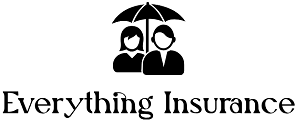The freelance and gig economy is growing rapidly with several people picking interest in adaptable and self-reliant freelance work over the traditional 9-to-5 grind. However, this newly identified freedom is accompanied by a unique set of obstacles and one of the most important ones is basically securing the right insurance coverage.
Contrary to the traditional employees with benefits sponsored by their employers, freelancers and gig workers are responsible for securing their insurance. Meanwhile, there are lots of freelancer insurance plan available which makes it difficult to pinpoint which is best for them; thus, this article will provide you with the information needed to assess your specific insurance needs and make informed decisions on freelancer insurance plan.
Why Do Freelancers Need Insurance?
While the freedom of freelancing is undeniable, it also means you’re responsible for managing your risks. This is why it is necessary to have the right insurance plan for freelancers and gig workers. Here are some other reasons freelancers and gig workers should have insurance coverage:
- Financial Protection: In the event that accidents, illnesses, or unexpected events negatively affect your income, your best bet is the right Insurance scheme. Insurance provides financial security in such situations, helping you offset medical bills, lost wages, or legal fees.
- Professional Liability: Freelancing often involves working with clients and handling sensitive information. Errors and omissions (E&O) insurance protects you from lawsuits or claims arising from mistakes or negligence in your work.
- Peace of Mind: Knowing you have the right insurance coverage allows you to focus on your work without the constant worry of financial repercussions from unforeseen circumstances.
How to Choose the Best Freelancer Insurance Plan
Having established the importance of insurance for freelancers, now let’s take a look at the step-by-step process to assess your specific needs:
1. What Are The Risks Associated With Your Work?
- Industry: The type of freelance work you do reflects your insurance needs. For instance, a graphic designer might need equipment insurance, while a freelance writer may not.
- Potential Liabilities: The potential risks associated with your work are another major factor to take into account when brainstorming an insurance plan for freelancers. Do you handle client data? Do you work on-site at client locations? Identifying these risks will guide your insurance selection.
2. What Are Your Health Needs?
- Health Insurance: Freelancers don’t have employer-sponsored health insurance. Explore options like individual health insurance plans or joining an association health plan offered by freelance organizations.
- Disability Insurance: An illness or injury could greatly impact your earning ability. Disability insurance provides financial support if you’re unable to work due to a covered medical condition.
3. What Are Your Financial Situations?
- Income Fluctuations: Freelance incomes are unstable. Factor in your average income and financial reserves when determining the level of coverage you need.
- Deductibles and Premiums: Understand the trade-off between deductibles (the amount you pay out-of-pocket before insurance kicks in) and premiums (your monthly insurance cost).
4. Explore Different Insurance Options:
- General Liability Insurance: This protects you from claims of bodily injury, property damage, or personal injury arising from your work.
- Errors and Omissions (E&O) Insurance: This takes care of the legal costs and damages if a client sues you for mistakes or negligence in your work.
- Property and Equipment Insurance: This allows you to secure your work equipment and office space from damage or theft.
- Cybersecurity Insurance: If your work involves handling sensitive client data, cybersecurity insurance is a great choice to cover the costs associated with data breaches.
- Health Insurance: There are several individual health insurance plans such as Health Savings Accounts (HSAs), which protect your health as a freelancer, or freelance-specific health insurance options.
- Disability Insurance: Short-term and long-term disability insurance plans are great choices to protect your income in case of illness or injury.
5. Don’t Be Afraid to Ask for Help
Consulting an insurance agent or broker specializing in freelancer insurance can come in handy. They can estimate your specific needs, explain different policy options in clear and unambiguous terms, and help you obtain the right coverage at an affordable rate.
Building a Customized Insurance Portfolio for Your Freelance Career
There’s no general approach to addressing different needs at a time as far as freelancer insurance is concerned. By carefully assessing your work, health needs, and financial situation, you can create a customized insurance portfolio that provides the necessary safety net for your freelance career. Importantly, the right freelancer insurance plan is an investment in your long-term success and peace of mind.
Additional Tips for Freelancer Insurance Plan Success
- Shop Around and Compare Rates: Before you reach a resolution with any Insurance company, try other Schemes. In other words, don’t go for the first quote you receive. Get quotes from multiple insurance companies to find the best coverage at a competitive price.
- Review Your Coverage Regularly: As your business grows and your needs evolve, it’s crucial to review your insurance coverage from time to time to ensure it remains adequate. You should review your freelancer insurance policy when:
- Changes in Income: If your income increases significantly, you might need to adjust your coverage amounts to cover other things.
- Expanding Service Offerings: Adding new services to your freelance repertoire may require additional insurance coverage to include those parts too.
- Changes in Work Location: If you transition from working from home to a dedicated office space, your insurance needs might change.
- Read the Fine Print: Before finalizing any insurance policy, meticulously review the terms and conditions. Pay close attention to exclusions, coverage limitations, deductibles, and claims procedures.
- Maintain Good Records: Having well-organized records of your income, expenses, and client contracts can expedite the claims process if you ever need to file one.
Final Thoughts on Freelance Insurance Plan
Freelancing has been tested to offer immense opportunity and flexibility. Therefore, by taking a proactive approach to your insurance needs, you can handle the possible challenges with confidence and focus on what you do best – delivering outstanding work for your clients. The right insurance coverage is an investment in your freelance future, protecting your income, reputation, and peace of mind.





